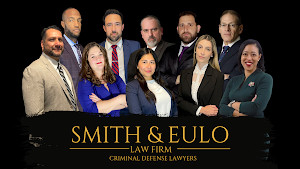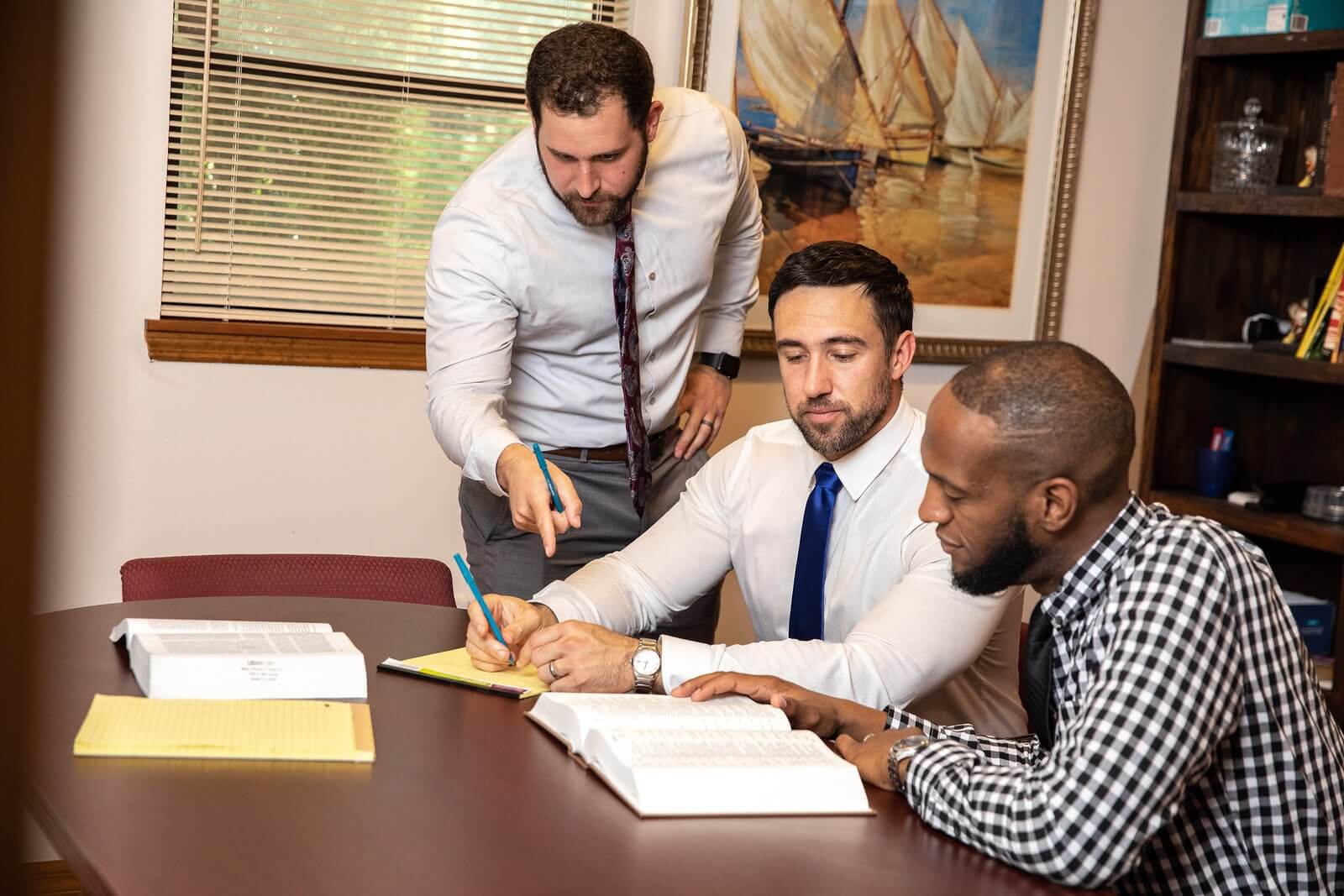
100+ Years of experience
Award-Winning Criminal
Defense Lawyers Serving
Kissimmee And All Of Central Florida
We have one of the few Board Certified Criminal Trial Lawyers in the state of Florida.
Kissimmee, FL
Criminal Defense Attorneys
If you’re lucky, you will never need to be concerned with the criminal justice system in Kissimmee, Florida. However, it’s not uncommon to find yourself facing criminal charges, whether you are an adult or a minor. When this happens, the best thing to do first is to look for a qualified Kissimmee criminal defense attorney to assist you.
The criminal justice system can be complicated and deliberately confusing to ensure that you do not achieve your optimal outcome. Having a lawyer to guide you through the complexities will guarantee that you do everything you can to come out on top.
A qualified attorney will recognize the consequences that a conviction might have on your life, and will understand that one mistake or false accusation should not take everything you have away from you.

Contact Us Today!
We strive to achieve fair and just trials for all or our clients, and we can do the same for you. Call us today at 407-818-1141 for a free case review with our qualified criminal defense lawyers.
Criminal Charges in Kissimmee, FL
No matter what kind of criminal charge you’re facing, an expert criminal defense lawyer will be able to help you navigate the justice system and prevent a conviction. They should help you understand the exact nature of the charge and how to present your case accordingly.
There are a variety of criminal charges, from felonies to misdemeanors, that you might be facing in Kissimmee. Our qualified attorneys are experienced in the following practice areas:
- DUI Charges
- Theft & Fraud Charges
- Domestic Violence
- Assault & Battery
- Drug Crimes
- Violation of Probation
- Sex Offenders
- Juvenile Defense
DUI Charges
A DUI charge can be a serious conviction, especially if this is not your first DUI. A fourth DUI offense (the last offense the statute defines) can result in up to:
- $2,000 in fines
- A lifetime license revocation
- 5 years in prison
- A third degree felony charge
- 90 day vehicle impoundment
A DUI conviction can have a serious impact on your life, both personally and professionally. Hiring a good DUI lawyer can save your job, your reputation, and your freedom.
Theft & Fraud Charges
Theft in Florida is defined as:
- Knowingly obtaining or using another person’s property
- Appropriates the property to his/her/another person’s use
- The intent to temporarily or permanently deprive a person of their right to a property, or benefit from a property
Theft is put into two categories, petty and grand theft. Petty theft, unless convicted multiple times, is a misdemeanor charge. Grand theft is a felony charge. Petty and grand theft come in many different degrees, including:
- Second degree petty theft
- First degree petty theft
- Third degree grand theft
- Second degree grand theft
- First degree grand theft
Fraud in Florida is a broad term, but usually involves someone misrepresenting themselves or information to another person, and the person suffers a loss as a result. Common types of fraud include:
- Identity theft
- Corporate fraud
- Telemarketing fraud
- Tax evasion
- Credit fraud
- Mail fraud
Domestic Violence
Domestic violence in Florida is defined as specified types of violence committed against a household or family member. These types of violence include (but are not limited to):
- Battery
- Assault
- Kidnapping
- Stalking
- Sexual assault
The minimum punishment for a domestic violence charge in the state of Florida is 5 days imprisonment. However, a domestic assault conviction can lead to serious jail time if connected with another crime like assault, battery, and others.
Assault & Battery
Assault and battery are two separate crimes in the state of Florida. Assault is defined as an action or threat that causes the fear of harm, while battery is unwanted touching or causing physical harm to an individual. Following are the different degrees of assault and battery:
- Simple assault (misdemeanor charge)
- Aggravated Assault (felony charge)
- Simple battery (misdemeanor charge)
- Felony battery (felony charge)
- Aggravated battery (felony charge)
If a threat was made and you have caused physical harm, charges of both assault and battery can be handed down. The sentencing for both assault and battery depends heavily on the circumstances, especially when a deadly weapon is involved.
Drug Crimes
Drug charges vary greatly depending on the class of drug, the intent to use or distribute, and the amount of the drug you were in possession of. Following are common drug charges we see in Florida, as well as the penalties associated with the charges:
- Possession of marijuana under 20 grams- misdemeanor with up to 1 year imprisonment and a $1000 fine
- Possession of marijuana between 20 grams and 25 pounds (intent to sell): Felony with up to 5 years imprisonment and a $5000 fine
- Possession of marijuana over 25 pounds: Possession of over 25 pounds can be considered trafficking, a felony charge with a maximum sentence of 30 years imprisonment.
- Cocaine possession under 28 grams (with no intent to distribute) – Third degree felony with a maximum sentence of 5 years imprisonment and a $5000 fine.
- Cocaine possession under 28 grams (with intent to distribute) – Second degree felony with a maximum sentence of 15 years imprisonment and a $10000 fine.
- Cocaine possession over 28 grams – Felony trafficking charge with sentences from 3 years to life imprisonment, and $50,000-$250,000 in fines (depending on amount).
Violation of Probation
There are two types of probation violation in the state of Florida, technical and substantive. Technical violations occur when an individual violates one of the terms of their probation, such as:
- Failing a drug test
- Failure to pay court fees
- Failure to appear at a mandatory probation meeting
- Failure to complete court-ordered rehabilitation
Substantive violations occur when a person commits a new crime while on the term of their probation, and normally results in a probation revocation and new charges being added. Both probation violations can result in imprisonment, varying widely depending on the act.
Sex Offenders
Sex offenses cover a wide range of sex crimes in the state of Florida. Sexual crimes receive some of the harshest penalties in the state of Florida, and depend heavily on the age of the victim, the age of the offender, and any aggravating circumstances. Here are some charges for sex crimes in Florida:
- Solicitation of prostitution – misdemeanor (if first offense) usually resulting in probation
- Lewd/lascivious battery – up to 15 years imprisonment
- Aggravated sexual battery (victim over the age of 12) – minimum imprisonment of 108 months, up to life imprisonment
- Sexual battery on a child under the age of 12 – if the defendant is over the age of 18, this is considered capital sexual battery with a mandatory life sentence without the possibility of parole.
Many different factors go into the sentencing and charges associated with sex crimes. While this list is a small portion, there are a wide variety of crimes an individual can be charged with relating to sex offense. The charge and penalty will be heavily dependent on the circumstance of the crime.
Juvenile Defense
The Juvenile Justice System is different from the adult criminal justice system. In the state of Florida, juvenile cases are handled by a judge and no jury is involved (unless the case is “direct filed” and the juvenile is tried in adult court). When a child is arrested, he/she may be held in a detention center, or be released to the parents for non-secure detention. In a juvenile case, the judge will determine a probation period or one of four commitments in a juvenile program:
- Low risk programs: 30-45 days
- Moderate-risk programs: 4-6 months
- High-risk programs: 6-9 months
- Juvenile prison: 18-36 months
The Juvenile Justice System is designed to rehabilitate minors, but can still leave a stain on your criminal record. Contact a qualified juvenile defense attorney to discuss your options, and how to proceed with your child’s case.


































































































































































































































































































































































































































What to Expect in Your Criminal Case
The criminal defense process will most likely be something you are very unfamiliar with. It can be very intimidating to go through the legal process by yourself, so ensuring you have the expertise of a great criminal defense attorney can put your mind at ease. If you need criminal defense representation in Kissimmee, Smith & Eulo Law Firm is here to assist you!
Hire a Criminal Defense Attorney
The first step in the process of defending your criminal charges is to contact a qualified criminal defense lawyer. Most lawyers offer a free initial consultation to give you an idea of what it will take to defend your case, including our team at Smith & Eulo. You can schedule your free consultation with us by calling 407-818-1141
Arriving at Court
Your case in Kissimee will probably be heard at the Osceola County Courthouse. Make sure you are prepared to arrive on time at your court date, allowing for traffic and parking. You can also access information about your court date on the courthouse’s website.
Kissimmee, FL Office
Our Kissimmee office is located in the heart of historic downtown Kissimmee, FL at 111 E Monument Ave, Unit 408, Kissimmee, FL 34741. Contact us on our site or call 407-818-1141 to schedule your appointment.
